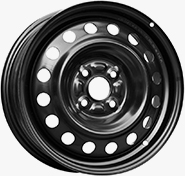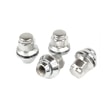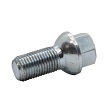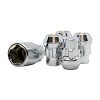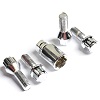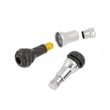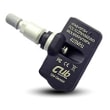Kilowatt to horsepower converter. How do you convert kW to hp? 1 kW - how many hp is it?
When you buy a car, sooner or later you encounter two units describing engine power: kilowatts (kW) and horsepower (hp). Some manufacturers and authorities use kW, others prefer hp, leaving you wondering – what exactly does the difference in numbers mean? Is 110 kW a lot or a little? And how many horsepower is it really? Contrary to appearances, the matter is not that complicated. You just need to understand what these units are, how to convert them, and when they matter.
What is a kilowatt – an official unit
The kilowatt (kW) is the official unit of power used within the International System of Units (SI). That's why you'll find it in car registration documents, type-approval documents, and manufacturer specifications. This means that whether you buy a car in Poland, Germany, or Japan, the same measurement applies everywhere.
1 kW = 1000 W. One watt, in turn, corresponds to one joule of work performed per second. In practice, this means that a kilowatt expresses the amount of energy an engine produces per unit of time. The higher the kW value, the more energy goes to powering the wheels, and the more dynamic the car can be.
How is power in kW calculated?
From a physics perspective, engine power is the product of torque and speed. The formula is as follows:
- Power [kW] = (Torque [Nm] × Speed [rpm]) / 9549.3
For example, if an engine generates a torque of 250 Nm at 4,000 rpm, its power is approximately 105 kW.
This approach is highly precise because it takes into account both the force with which the engine "turns" the shaft (torque) and its rotational speed. This is why kW is so important in technical analyses – it allows for accurate comparisons of designs from different manufacturers and technologies, regardless of capacity or fuel type.
The Mechanical Horse – Tradition and Psychology
Horsepower (HP), also known as PS (Pferdestärke) , is an older but still very popular unit. Although not officially part of the SI system, it remains the most understandable for many drivers.
It's easier to imagine a car with 150 hp than 110 kW – horsepower figures seem larger and immediately evoke emotions. When we say "200 hp under the hood," everyone knows we're talking about a dynamic, fun-to-drive car. It's this psychological factor that, despite its official replacement by kW, still holds sway in everyday language.
Where did the name come from?
The unit originated during the Industrial Revolution. James Watt, perfecting the steam engine, needed a way to easily explain its performance to customers. People knew how much work a workhorse performed, so Watt defined 1 horsepower as the power required to lift 75 kg 1 meter in 1 second . This equates to 735.5 watts .
This made it easy for everyone to compare—if a machine has 10 hp, it replaces ten horses. It's a simple yet brilliant marketing move that has made the term "horsepower" a permanent part of the language of technology and motoring.
Kilowatt to horsepower converter
converter kilowatts to horsepower and vice versa
1 kW = 1.35962 HPEnter a value in any field and the result will be calculated automatically. We use the conversion for horsepower (HP) commonly used in Europe.
Practical differences between kW and HP
- Documents – always kW.
- Conversations and advertising – usually KM.
- Numerical values – KM always comes out to more, which works for marketing purposes.
For example, the 2.0 TFSI engine in the Audi A4 has an output of 140 kW. That sounds technical. But when you say it's 190 hp, the viewer immediately imagines a different image – a dynamic, fast car.
How to convert kW to HP?
The difference between kW and HP is just a matter of units, but it is worth knowing the conversion rate:
- 1 kW = 1.35962 HP – i.e. each kilowatt is approximately one and a third horsepower.
- 1 HP = 0.7355 kW – a horsepower is therefore slightly “smaller” than a kilowatt.
In everyday life, this knowledge comes in handy in many situations. When you import a car from Germany, the advert only shows kilowatts, while in Poland, friends will ask about the horsepower under the hood. The registration certificate, in section P.2, lists the kW figure, and you prefer to compare it with the sales advert, which lists hp. Also, when discussing performance, it's easier to say that a car has 200 horsepower than that it develops 147 kW.
Examples of the most popular car models
| Mark | Model | Power (kW) | Power (hp) |
|---|---|---|---|
| Volkswagen | Golf 1.4 TSI | 92 | 125 |
| Passat 2.0 TDI | 110 | 150 | |
| Tiguan 1.5 TSI | 110 | 150 | |
| BMW | 320d | 140 | 190 |
| 118i | 100 | 136 | |
| X5 30d | 210 | 286 | |
| Audi | A3 1.5 TFSI | 110 | 150 |
| A4 2.0 TDI | 120 | 163 | |
| Q5 40 TDI | 150 | 204 | |
| Toyota | Yaris Hybrid | 85 | 116 |
| COROLLA 1.8 Hybrid | 103 | 140 | |
| RAV4 Hybrid | 160 | 218 | |
| Opel | Astra 1.6 | 85 | 115 |
| INSIGNIA 2.0 CDTI | 125 | 170 | |
| Corsa 1.2 Turbo | 74 | 100 |
What about electric cars?
In the case of electric cars, manufacturers immediately provide power in kilowatts, as this is a unit naturally associated with electricity. However, drivers still often convert it to horsepower to make it easier to compare an electric car with a combustion engine.
Examples:
- The Tesla Model 3 Long Range has a power of about 200 kW , or roughly 270 hp .
- The Nissan Leaf e+ offers 160 kW , or approximately 218 hp .
Thanks to a simple converter, you can easily compare two completely different drives – and better assess their real performance.
What to remember as a driver?
In technical and official documents, you'll always encounter kilowatts. This is the standard throughout Europe. However, in everyday conversations and advertisements, horsepower is more often used because it's more graphic and captures the imagination.
The conversion rate is simple – 100 kW ≈ 136 hp – and it's worth keeping in mind. But remember that power alone doesn't tell the whole story about a car. Torque, vehicle weight, and drivetrain characteristics are equally important. Two cars with the same power output can handle completely differently: a lightweight compact will be agile and dynamic, while a heavy SUV with an identical engine will be much more relaxed.
So, when looking at kW or hp numbers, treat them as a starting point. If you really want to assess a car's potential, also consider torque, weight, and acceleration figures. Only then will you have a complete picture of how the car will perform on the road.

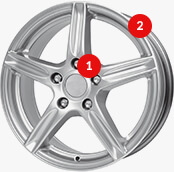

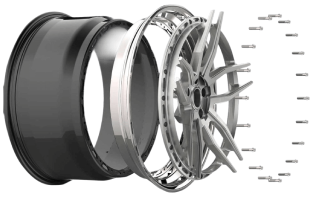
 Modern design
Modern design Perfect fit
Perfect fit High durability
High durability Free shipping within 24 hours
Free shipping within 24 hours
 Individual project
Individual project Dedicated caregiver
Dedicated caregiver